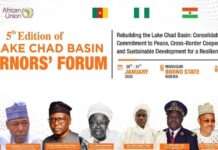The European Union Election Observation Mission (EUEOM) in Sierra Leone said the country’s National Election Commission delivered credible and well-organised electoral process in spite of numerous challenges.
The Chief Observer of the mission, Ms Jean Lambert, made the observation while presenting the group’s preliminary report on Wednesday’s Presidential, Parliamentary and Local Councils elections to the media in Freetown.
Lambert said that Sierra Leonean voters demonstrated willingness to consolidate democracy in their country through peaceful conduct.
“These elections, the fourth since the end of the civil war, marked another milestone in the consolidation of democracy in Sierra Leone.
“They were conducted transparently and impartially by the National Electoral Commission (NEC).
“Voters were able to exercise their democratic rights peacefully. However, intimidation and instances of violence marred the elections.
“At the time of issuing this preliminary statement, the electoral process continues at Regional Tally Centres,’’ she stated.
She said that the EUEOM observed the conduct of the elections in more than 400 polling stations across the 16 districts in the country, adding that voters’ turn-out was impressive.
Lambert, however, said that procedural shortcomings were detected, “although they did not have a significant impact on the integrity of the process”.
“Observers assessed the voting as ‘good’ or ‘very good’ in 95 per cent of the polling stations, while the closing and counting were assessed as ‘good’ or ‘very good’ in 85 per cent of cases.
“Party agents representing the main parties and domestic observers followed the conduct of the elections in the vast majority of polling stations visited.
“The legal framework governing the 2018 elections provides a sufficient basis for the conduct of a sound electoral process in line with international and regional commitments.
“Nevertheless, shortcomings identified in the 2012 elections by the EUEOM remain with a number of constitutional requirements, not in line with international standards,’’ she added.
These, according to her, include the candidature for presidential and parliamentary office that was limited to citizens by birth.
Lambert said such excluded naturalised citizens and had been interpreted by political parties as excluding holders of dual citizenship as well.
“The supposed constitutional prohibition on candidates, who are dual citizens, was one of the most controversial issues of these elections.
“It is widely believed that many elected politicians in the last parliament were dual citizens, which led to a widespread assumption that the questioning of the supposed dual citizen provisions was politically expedient.
“The requirement for candidates to resign 12 months prior to the elections from ‘public office’, besides being unreasonably long, has been interpreted to exclude public sector employees such as teachers.
“This provision, in particular, was criticised by Civil Society Organisations (CSOs) as disproportionally affecting women, as they are prominent in the education sector,’’ she said.
Lambert added that the requirement for presidential candidates to be members of, and nominated by, a political party prevented independent candidates.
“All these shortcomings were identified already by the 2012 EUEOM and were recommended to be addressed.’’
According to her, an increasing number of acts of intimidation and violence against candidates and activists affected the electoral process, while the campaign was affected by intimidation.
The chief observer called on the police to exercise their duties in an impartial, proportionate manner and duly investigate all acts of violence.
“Political parties and candidates should urge supporters to refrain from using intimidation, violence and should publicly commit to accepting credible election results as determined by NEC.’’
On her part, Neena Gill, Head of the European Parliament delegation, endorsed the preliminary statement of the EUEOM.
She said: “The European Parliament greatly values the EU’s partnership with Sierra Leone.
“As the tallying continues, I call on all the parties to work together to enhance confidence and trust.
“In particular, it is vital that we continue to improve the participation and representation of women at all levels in the country.’’
Gill added that the country had gone through many tragedies and the mission hoped that the country was “now on a path to stable future’’.
“Therefore, the coming week will be critical as you wait for the results and as we look towards a possibility of the second round.
“It is important for every party to resolve any dispute in a peaceful manner, and that there is a smooth transition of power from President Ernest Koroma to his successor.
“On our part, the Europe Union Parliament is deeply committed to supporting Sierra Leone along its democratic path,” she said. (NAN)



